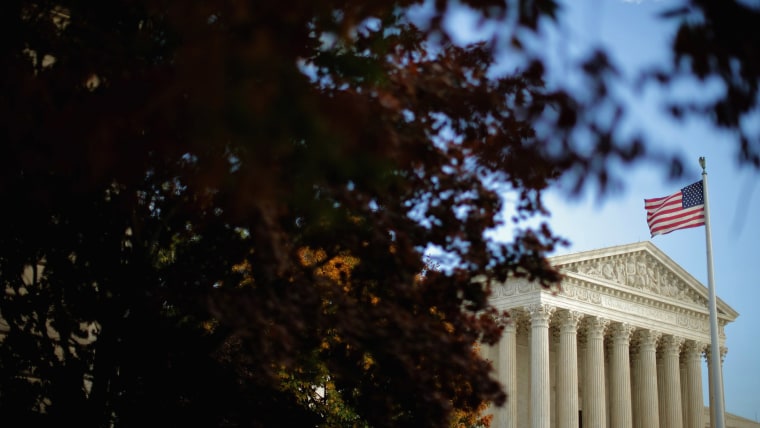The state of Washington has a law that requires pharmacies to dispense medications, even if individual pharmacists have religious objections. One family-owned pharmacy challenged the law in court, saying it shouldn't be required to sell emergency contraception, which the pharmacy's owners consider immoral.
An appeals court sided with the state, and the case was appealed to the U.S. Supreme Court. Yesterday, the justices announced they
would not hear the case, which has the effect of leaving the lower court's ruling intact.
And while that would ordinarily be the end of the dispute, yesterday offered a bit of a twist. The Supreme Court said it wouldn't hear the appeal out of Washington, but at the same time, Justices Samuel Alito, John Roberts, and Clarence Thomas
released an angry rebuttal, saying they not only wanted to hear this case, they also consider the majority's disinterest in the matter to be "an ominous sign."
MSNBC's Irin Carmon
highlighted yesterday's "unusual" statement.
"This case is an ominous sign," Alito wrote in an unusual, 15-page response to the court refusing to hear Stormans v. Wiesman.... "If this is a sign of how religious liberty claims will be treated in the years ahead," Alito continued, sounding a lot like a man who foresees a bleak future for his side, "those who value religious freedom have cause for great concern."
No, actually, they almost certainly don't.
As is always the case, especially in Supreme Court disputes, the details matter. In Washington, state law still allows individual pharmacists to raise religious objections to helping a customer, so long as some other employee can step in and provide the prescribed medication. The plaintiffs in Stormans v. Wiesman, however, wanted to go much further -- refusing to stock Plan B altogether, regardless of public needs.
The state's policy is based on the entirely reasonable idea that consumers should have access to medications that are safe and legal, and pharmacies shouldn't have the authority to simply turn people away. The far-right trio on the high court obviously disagree, and
Slate's Mark Joseph Stern
explained the broader implications of their dissent.
...Alito, Thomas, and Roberts seem to believe that, under the Free Exercise Clause of the First Amendment, states are proscribed from requiring for-profit religious businesses to treat all customers equally. If this unholy trinity ever managed to rewrite the First Amendment this way, they could effectively bar states from protecting women, gays, and other minorities from religious-based discrimination. [...] Neither [Alito], Roberts, nor Thomas thinks refusal of service is a big deal when patients can hop back in their cars (presuming they have them) and drive to the nearest pharmacy that will deign to provide them with the proper medication. (Live in rural Washington? Hope you can find another pharmacy before the Plan B window closes!) This cavalier dismissal of women's interest in nondiscrimination flies in the face of precedent. The court used to say that when a religious accommodation burdens other people's rights, the accommodation itself violates the separation of church and state. Now Alito wants to push that rule through the looking glass, arguing that there's a possibility states must give religious employers the right to burden others -- a burden that will fall disproportionately on women and gays.
Keep in mind, if four justices agree to hear a case, the Supreme Court takes the case. Were it not for Antonin Scalia's passing, it's very likely Stormans v. Wiesman would be on its way towards oral arguments.
